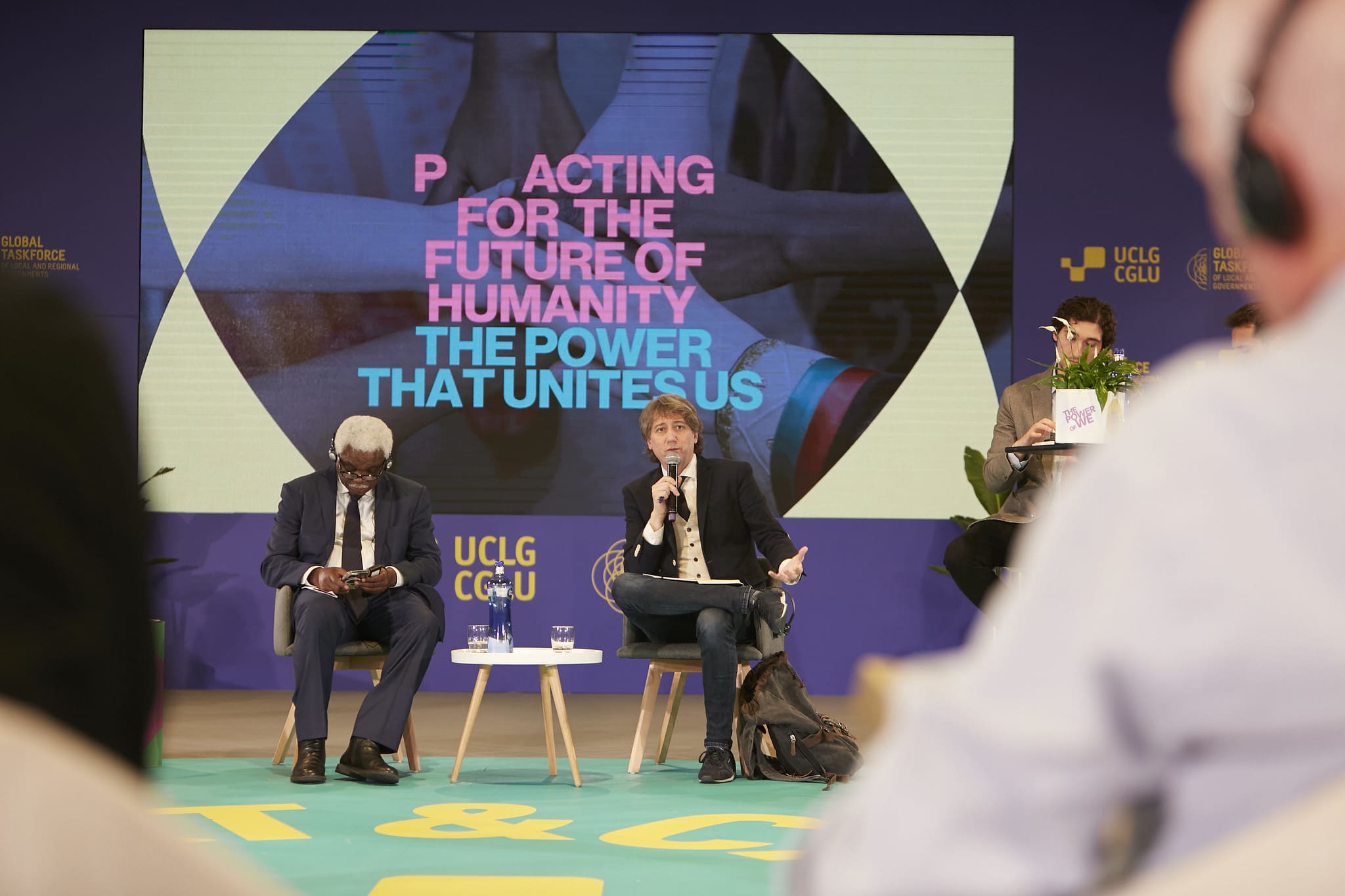The successful implementation of SDGs and UCLG’s Pact for the Future of Humanity is highly dependent on their localisation. As we progress towards 2030, it is increasingly vital to consider the localised trends crucial for achieving the SDGs. Factors such as demographics, migration or artificial intelligence can significantly impact the processes at the local level. Recognising and addressing these trends is vital for every local and regional government. The session aimed to provide insights and inspire the constituency’s work and advocacy initiatives towards achieving the SDGs.
Billy Cobbett, UCLG UBUNTU, has set the scene by highlighting that “localisation cannot be a series of projects, but to truly implement the SDGs at all levels of government requires the systematic changing of policies, of priorities, of behaviour, and budget.” Localising the SDGs requires collaboration between several tiers of government based on subsidiarity and shared responsibility.
Carlos Martínez, Mayor of Soria, sees the 2030 Agenda as a revolutionary shift towards “putting the well-being of both people and the planet at the centre.” He emphasises the need for a clear roadmap and strategy, emphasising the importance of listening to citizens and building consensus to overcome conflicts.
Voicing the perspectives from the African continent, Jean Pierre Elong Mbassi, Secretary General of UCLG Africa, highlights the diverging demographic trends across continents, particularly in Africa, where a youthful population contrasts with ageing societies elsewhere. This demographic trend brings an imbalance of wealth, leading to increased migration. He emphasised the importance of building consensus amid growing political tensions. He also stressed the role of UCLG as the platform where members can “move beyond their differences and build upon solutions.”
In discussions on demography and human mobility, speakers emphasised the importance of integrating migrants into local communities and economies. Clare Hart, Vice-President Montpellier Mediteranée Métropole, highlights the positive contributions of migrants and the need for inclusive practices. She boldly states that “international migration is a pact of life. Closing our eyes is not an option. Agenda 2030 is a radical way forward, and we need its localisation.” Echoing the message from other speakers, Sashini Gomez of the International Organization for Migration (IOM) underscored the complex nature of migration and the role of local governments as frontline responders to migration challenges.
Pierre Martinot-Lagarde from the International Labour Organization (ILO) discussed the unequal access to jobs in the face of technological advancements like artificial intelligence and robotisation. He called for global collaboration and transition strategies to address these challenges.
In addressing accessibility, youth issues, and the future of work, speakers like Bheke Stofile, Co-President of UCLG and President of SALGA, and Juan Pablo Poletti, Mayor of Santa Fe, emphasised the importance of inclusive communication and tangible actions to improve accessibility for persons with disabilities. Poletti, who took the spot just sixty days ago, shared examples of the actions his team has already taken to make Santa Fe more accessible. Stofile argued for the need for local and regional governments to deliver innovative approaches to emerging technologies to improve communication and trust between communities and institutions.
Finally, Thiago Hérick de Sá, from the World Health Organization (WHO), stressed the need for age-friendly environments to support healthy ageing populations. Among the key achievements of the past years was that “across the world, more people are living longer than ever before (but not necessarily healthier).” He urged UCLG members to join the global community building age-friendly environments.
Navigating the localisation trends requires a holistic approach that recognises the interconnectedness of global challenges and the need for inclusive and collaborative solutions. By prioritising empowerment, inclusivity, and innovation at the local level, the world can move closer to building a sustainable future for all.


 This publication was produced with the financial support of the European Union. Its contents are the sole responsibility of UCLG and do not necessarily reflect the views of the European Union.
This publication was produced with the financial support of the European Union. Its contents are the sole responsibility of UCLG and do not necessarily reflect the views of the European Union.